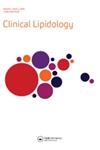Effects of dietary cholesterol in diabetes and cardiovascular disease
Q Medicine
引用次数: 12
Abstract
Abstract Dietary cholesterol has received a lot of attention in regards to its potential association with both heart disease and Type 2 diabetes from health professionals and the general public. There is ample evidence from epidemiological data, meta-analysis reports and clinical interventions on the lack of a relationship between dietary cholesterol and heart disease risk. However, current reports appear to indicate that increased dietary cholesterol may be associated with an increased risk for heart disease in diabetic patients. Further, the relationship between dietary cholesterol and diabetes risk has not reached a consensus in the current literature and clinical studies have failed to prove that increased dietary cholesterol affects glucose metabolism or insulin resistance, indicating the need for more prospective and clinical studies. The current review will address the controversies from studies focusing on the associations and/or lack of correlation between dietary cholesterol and heart disease as well as dietary cholesterol and diabetes.膳食胆固醇对糖尿病和心血管疾病的影响
膳食胆固醇因其与心脏病和2型糖尿病的潜在关联而受到卫生专业人员和公众的广泛关注。流行病学数据、荟萃分析报告和临床干预都有充足的证据表明,膳食胆固醇与心脏病风险之间缺乏关系。然而,目前的报告似乎表明,饮食胆固醇的增加可能与糖尿病患者患心脏病的风险增加有关。此外,目前文献中膳食胆固醇与糖尿病风险的关系尚未达成共识,临床研究也未能证明膳食胆固醇升高会影响葡萄糖代谢或胰岛素抵抗,需要更多的前瞻性和临床研究。本综述将讨论膳食胆固醇与心脏病以及膳食胆固醇与糖尿病之间的关联和/或缺乏相关性的研究中存在的争议。
本文章由计算机程序翻译,如有差异,请以英文原文为准。
求助全文
约1分钟内获得全文
求助全文
来源期刊

Clinical Lipidology
生物-生化与分子生物学
CiteScore
0.44
自引率
0.00%
发文量
0
审稿时长
6-12 weeks
期刊介绍:
The Journal of Clinical Lipidology is published to support the diverse array of medical professionals who work to reduce the incidence of morbidity and mortality from dyslipidemia and associated disorders of lipid metabolism. The Journal''s readership encompasses a broad cross-section of the medical community, including cardiologists, endocrinologists, and primary care physicians, as well as those involved in the treatment of such disorders as diabetes, hypertension, and obesity. The Journal also addresses allied health professionals who treat the patient base described above, such as pharmacists, nurse practitioners and dietitians. Because the scope of clinical lipidology is broad, the topics addressed by the Journal are equally diverse. Typical articles explore lipidology as it is practiced in the treatment setting, recent developments in pharmacological research, reports of treatment and trials, case studies, the impact of lifestyle modification, and similar academic material of interest to the practitioner. While preference is given to material of immediate practical concern, the science that underpins lipidology is forwarded by expert contributors so that evidence-based approaches to reducing cardiovascular and coronary heart disease can be made immediately available to our readers. Sections of the Journal will address pioneering studies and the clinicians who conduct them, case studies, ethical standards and conduct, professional guidance such as ATP and NCEP, editorial commentary, letters from readers, National Lipid Association (NLA) news and upcoming event information, as well as abstracts from the NLA annual scientific sessions and the scientific forums held by its chapters, when appropriate.
 求助内容:
求助内容: 应助结果提醒方式:
应助结果提醒方式:


